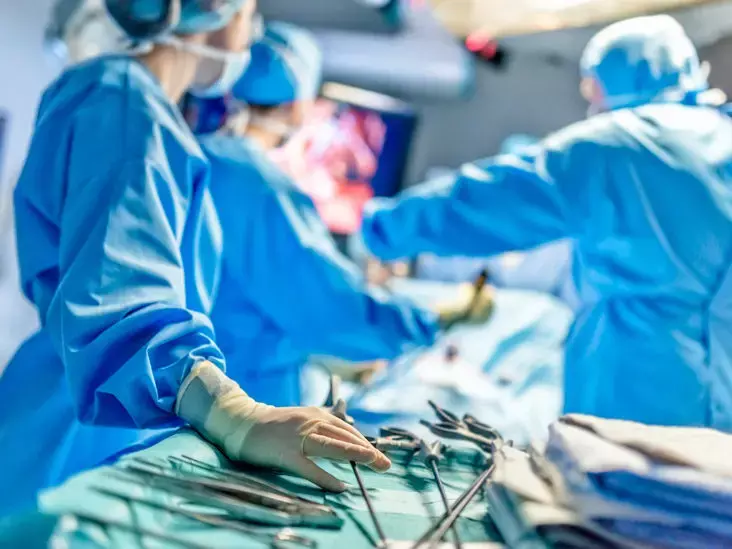- Home
- Medical news & Guidelines
- Anesthesiology
- Cardiology and CTVS
- Critical Care
- Dentistry
- Dermatology
- Diabetes and Endocrinology
- ENT
- Gastroenterology
- Medicine
- Nephrology
- Neurology
- Obstretics-Gynaecology
- Oncology
- Ophthalmology
- Orthopaedics
- Pediatrics-Neonatology
- Psychiatry
- Pulmonology
- Radiology
- Surgery
- Urology
- Laboratory Medicine
- Diet
- Nursing
- Paramedical
- Physiotherapy
- Health news
- Fact Check
- Bone Health Fact Check
- Brain Health Fact Check
- Cancer Related Fact Check
- Child Care Fact Check
- Dental and oral health fact check
- Diabetes and metabolic health fact check
- Diet and Nutrition Fact Check
- Eye and ENT Care Fact Check
- Fitness fact check
- Gut health fact check
- Heart health fact check
- Kidney health fact check
- Medical education fact check
- Men's health fact check
- Respiratory fact check
- Skin and hair care fact check
- Vaccine and Immunization fact check
- Women's health fact check
- AYUSH
- State News
- Andaman and Nicobar Islands
- Andhra Pradesh
- Arunachal Pradesh
- Assam
- Bihar
- Chandigarh
- Chattisgarh
- Dadra and Nagar Haveli
- Daman and Diu
- Delhi
- Goa
- Gujarat
- Haryana
- Himachal Pradesh
- Jammu & Kashmir
- Jharkhand
- Karnataka
- Kerala
- Ladakh
- Lakshadweep
- Madhya Pradesh
- Maharashtra
- Manipur
- Meghalaya
- Mizoram
- Nagaland
- Odisha
- Puducherry
- Punjab
- Rajasthan
- Sikkim
- Tamil Nadu
- Telangana
- Tripura
- Uttar Pradesh
- Uttrakhand
- West Bengal
- Medical Education
- Industry
Hiatal reconstruction safe and effective for control of reflux after laparoscopic sleeve gastrectomy

Hiatus hernia repair (HHR) with the reconstruction of the phreno-oesophagal ligament is a safe and effective procedure for patients with reflux after laparoscopic sleeve gastrectomy according to a recent study published in BMC Surgery.
Gastroesophageal reflux is a known complication following laparoscopic sleeve gastrectomy (LSG) as anatomical changes predispose to reduced lower oesophagal sphincter pressure and development of hiatus hernia. The mainstay of surgical management has been Roux-en-Y gastric bypass (RYGB) which is not without risk. Hiatus hernia repair (HHR) with surgical reattachment of the oesophagus to the crura, recreating the phreno-oesophagal ligament is a simple procedure specifically targeting a number of anatomical changes responsible for reflux in this population.
They conducted a single centre retrospective analysis of adult patients with post-sleeve reflux refractory to medical treatment, managed with either HHR, RYGB or One-anastomosis Duodenal switch (OADS). PPI use and symptoms of reflux were assessed at early and mid-term time points via validated questionnaires.
Results
- 99 patients were included, of these, the surgical procedure was HHR alone in 58, RYGB in 29 and OADS in 12.
- At early follow-up control of reflux symptoms was achieved in 72.4% after HHR, 82.1% after RYGB and 100% after OADS with no significant difference between groups
- At mid-term follow-up (median 10 months IQR 7–21) there was no significant difference in the presence of symptomatic reflux as determined by post-op Visick score nor a difference in PPI use. The GerdQ score was significantly lower after OADS as compared to HHR and RYGB
Thus, HHR with the reconstruction of the phreno-oesophagal ligament is a safe and effective procedure for patients with reflux after laparoscopic sleeve gastrectomy, that avoids more complex operations such as RYGB and OADS and their associated long-term sequelae.
Reference:
Indja, B., Chan, D.L. & Talbot, M.L. Hiatal reconstruction is safe and effective for control of reflux after laparoscopic sleeve gastrectomy. BMC Surg 22, 347 (2022). https://doi.org/10.1186/s12893-022-01800-y
Dr. Shravani Dali has completed her BDS from Pravara institute of medical sciences, loni. Following which she extensively worked in the healthcare sector for 2+ years. She has been actively involved in writing blogs in field of health and wellness. Currently she is pursuing her Masters of public health-health administration from Tata institute of social sciences. She can be contacted at editorial@medicaldialogues.in.
Dr Kamal Kant Kohli-MBBS, DTCD- a chest specialist with more than 30 years of practice and a flair for writing clinical articles, Dr Kamal Kant Kohli joined Medical Dialogues as a Chief Editor of Medical News. Besides writing articles, as an editor, he proofreads and verifies all the medical content published on Medical Dialogues including those coming from journals, studies,medical conferences,guidelines etc. Email: drkohli@medicaldialogues.in. Contact no. 011-43720751


